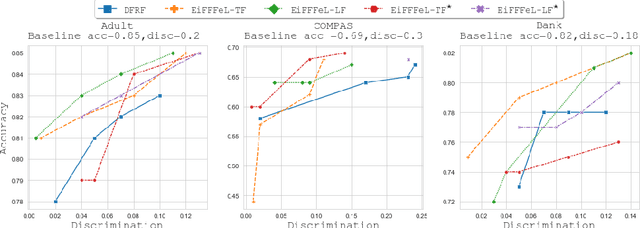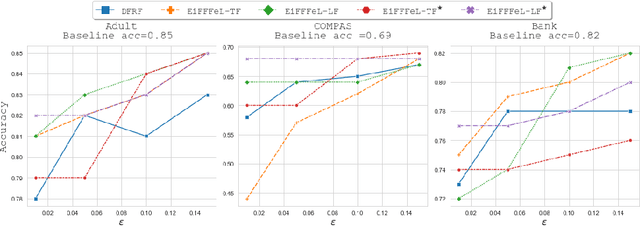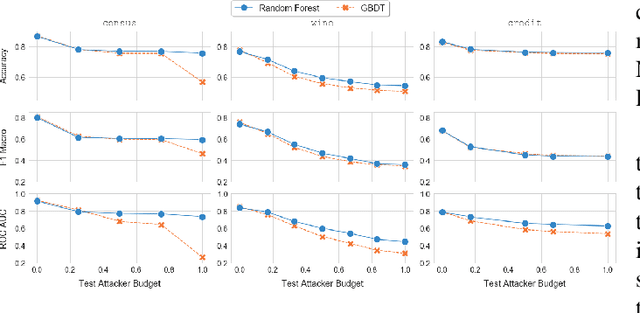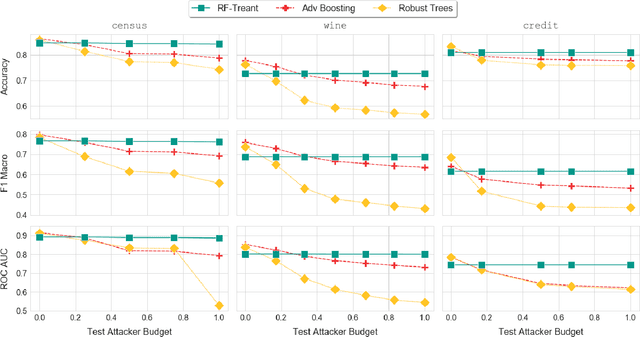Seyum Assefa Abebe
EiFFFeL: Enforcing Fairness in Forests by Flipping Leaves
Dec 29, 2021



Abstract:Nowadays Machine Learning (ML) techniques are extensively adopted in many socially sensitive systems, thus requiring to carefully study the fairness of the decisions taken by such systems. Many approaches have been proposed to address and to make sure there is no bias against individuals or specific groups which might originally come from biased training datasets or algorithm design. In this regard, we propose a fairness enforcing approach called EiFFFeL:Enforcing Fairness in Forests by Flipping Leaves which exploits tree-based or leaf-based post-processing strategies to relabel leaves of selected decision trees of a given forest. Experimental results show that our approach achieves a user defined group fairness degree without losing a significant amount of accuracy.
Treant: Training Evasion-Aware Decision Trees
Jul 03, 2019



Abstract:Despite its success and popularity, machine learning is now recognized as vulnerable to evasion attacks, i.e., carefully crafted perturbations of test inputs designed to force prediction errors. In this paper we focus on evasion attacks against decision tree ensembles, which are among the most successful predictive models for dealing with non-perceptual problems. Even though they are powerful and interpretable, decision tree ensembles have received only limited attention by the security and machine learning communities so far, leading to a sub-optimal state of the art for adversarial learning techniques. We thus propose Treant, a novel decision tree learning algorithm that, on the basis of a formal threat model, minimizes an evasion-aware loss function at each step of the tree construction. Treant is based on two key technical ingredients: robust splitting and attack invariance, which jointly guarantee the soundness of the learning process. Experimental results on three publicly available datasets show that Treant is able to generate decision tree ensembles that are at the same time accurate and nearly insensitive to evasion attacks, outperforming state-of-the-art adversarial learning techniques.
 Add to Chrome
Add to Chrome Add to Firefox
Add to Firefox Add to Edge
Add to Edge